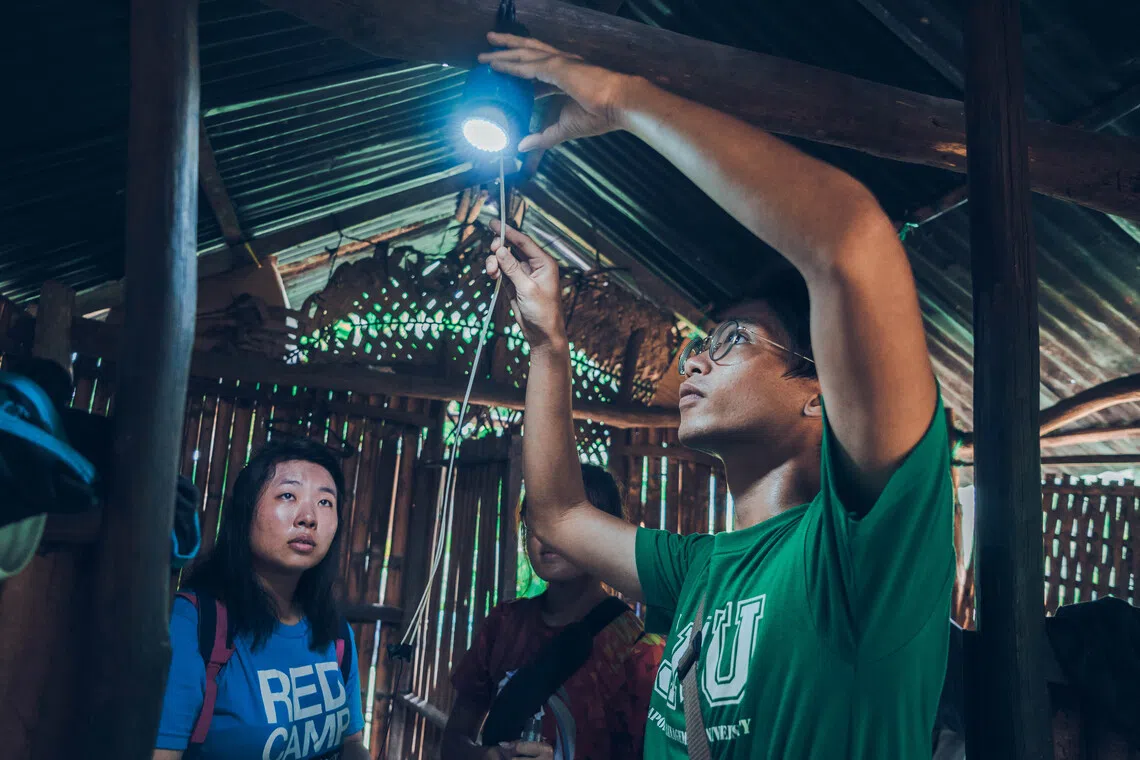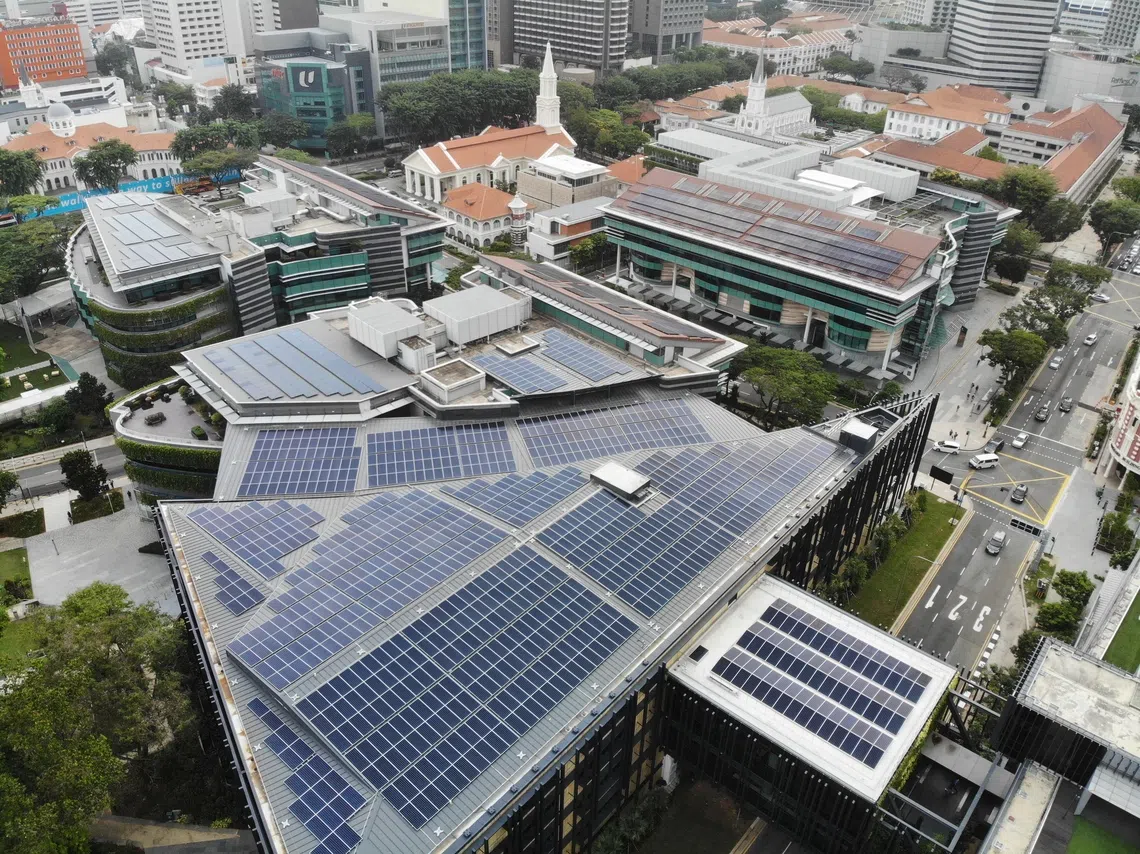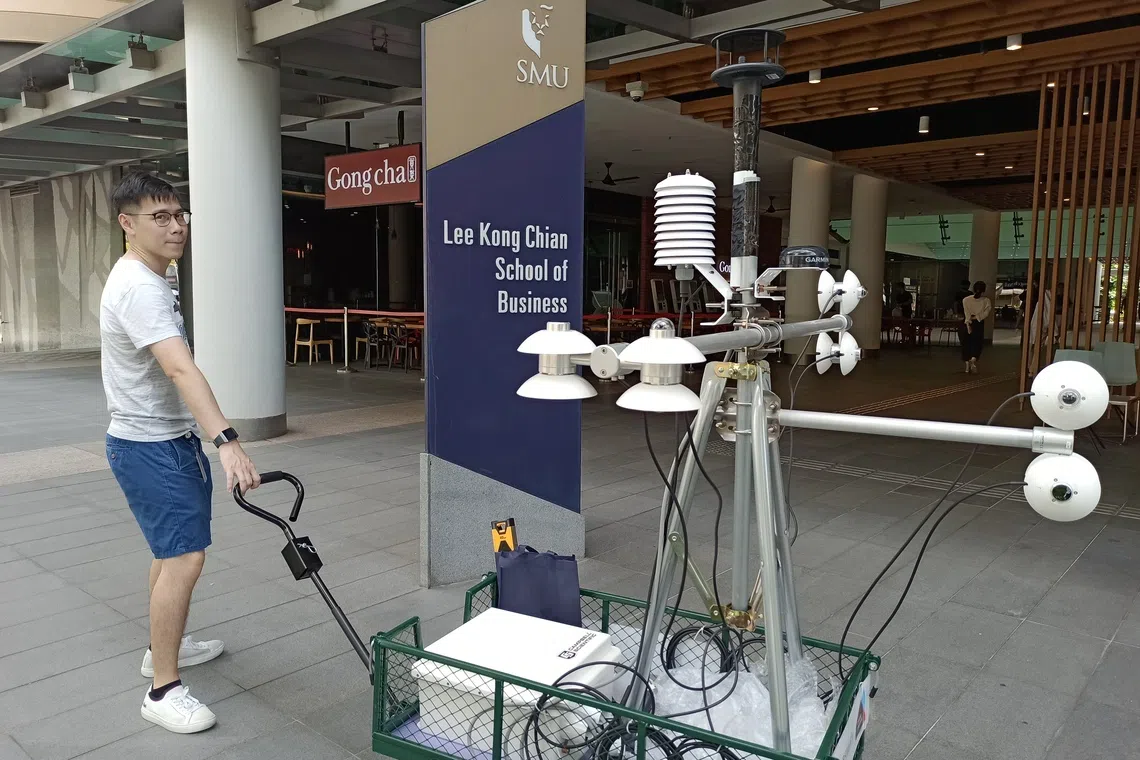‘Regenerative and restorative’: SMU president Lily Kong on the power of human-environment ties
The professor shares how she has upheld sustainability principles throughout her career

AS THE youngest of four children, Lily Kong used to receive hand-me-downs.
While that was largely born out of necessity as her family was poor at the time, it instilled in her lifelong habits of sustainability that she – now a professor and president of the Singapore Management University (SMU) – continues to practise today.
“My mother was the epitome of recycling,” said Prof Kong, who was named Impact Leader of the Year at this year’s Sustainability Impact Awards, jointly organised by The Business Times and UOB. “She would always say: ‘Well, you don’t need the whole piece of tissue paper, why are you using all of it? Just tear it in half and use what you need.’
“And to this day, we still do that. We always recycle things. So our Milo tin would be recycled into a container for our Chinese New Year goodies. These were just everyday practices that I never thought about, never intellectualised in the past, but they’ve become habits.”
Deepening knowledge
In addition to her upbringing, Prof Kong’s university years as a geography student further shaped her intellectual understanding of sustainability as being fundamentally about human-environment relationships.
She had read American marine biologist and conservationist Rachel Carson’s work, Silent Spring, widely considered a seminal work of the environmental movement that exposed the dangers of indiscriminate pesticide use to wildlife and human health.
Navigate Asia in
a new global order
Get the insights delivered to your inbox.
Then there was A Sand County Almanac by Aldo Leopold, an American ecologist who argued that humans are part of a larger ecological community and have an ethical responsibility to care for the land.
Besides environmental aspect, sustainability should also encompass the physical, emotional, mental and financial well-being of human beings, Prof Kong said.
“And there’s actually a connection between the two – environmental well-being and human well-being, and this takes the form of environments that are regenerative and restorative,” she said.
“Regenerative systems rely on the principles of nature, and use natural environments rather than technological and technical solutions. If we’re able to do more of that, this suggests that we’re using a whole lot more of nature-based solutions to the challenges that we have, and that can actually be restorative for human beings.”
While her undergraduate days as a geography student impressed upon her the integral relationship between humans and the environment, her PhD journey showed how sustainability can be applied in practice, thanks to her professor, Jacquie Burgess at University College London.
“She was working in a really committed way on her research, but not just research in an ivory tower, writing her papers and all that. She was doing things like media shows. She was working with the local community, to bring alive what being environmentally conscious means. So her research was driven by a genuine commitment and belief,” said Prof Kong.
These experiences have led her to integrate sustainability principles in her professional career, first as an academic, and then a leader of a university.
Sustainable living in SMU
Shortly after Prof Kong took over the reins as president of SMU in 2019, she set out to develop a strategic vision for the university.
After carrying a university-wide survey in which participants were asked to list the world’s biggest social imperatives of the day, the school settled on three priorities: digital transformation, sustainable living and growth in Asia.
A strategic road map on how “sustainable living” could be implemented was then developed under Prof Kong’s leadership. The blueprint had four areas of focus: developing change agents, driving impactful research, fostering resilient communities, and cultivating a greener university.
In developing change agents in this institution of higher education, Prof Kong saw how SMU could have a multiplier effect on sustainability through its students.
“Every year, we graduate a few thousand students. Soon we’ll have 50,000 alumni. If we can influence the alumni, educate the alumni in ways, inculcate in them values that they take with them, then you will have multiplier effects,” she said.

Taking a course on sustainability became part of students’ graduating requirements. Beyond its undergraduates, the university is also looking to introduce more lifelong learning courses for its postgraduate students, even beyond the shores of Singapore.
The university has already started masterclasses and executive training programmes on sustainability reporting in cities around South-east Asia, including Jakarta, Bangkok and Ho Chi Minh City.
As for its research function, SMU has launched two sustainability-focused research institutes – the Singapore Green Finance Centre and the SMU Urban Institute.
It will also set up two other institutes. One is the Longevity Societies and Economies Institute, which will focus on sustainable ageing; the other is the Resilient Workforce Institute, which will examine how the workforce navigates technological disruptions, and its training and development needs.
Fostering resilient communities entails introducing policies that support mental wellness among the university’s staff and students, developing a resilience framework and tracking the progress made.
In the fourth and final area of greening SMU as an organisation, the university recently issued a S$150 million sustainability bond. The proceeds from this will go towards financing green initiatives with environmental benefits, as well as funding social programmes to promote inclusive education to benefit students from low-income families.
The university is now refurbishing its buildings to make them more energy-efficient. It also plans to implement a policy requiring indoor air-conditioning temperatures to be set at 25 degrees Celsius or above, in line with the Singapore government’s initiative.
The campus has already attained the Building and Construction Authority’s Green Mark Platinum certification, and contains the largest on-site solar farm in the city centre.

SMU published its first sustainability report last year, detailing the university’s usage of energy and water resources in an initiative that is entirely voluntary for universities. Sustainability reporting is a requirement only for companies and government agencies in Singapore.
When asked why SMU took this step forward, Prof Kong said: “By putting it out there, we’re making a commitment, not just to ourselves. We’re willing to be held accountable and to put out information so that other people can look at the university as an organisation that is accountable to itself, accountable to the environment and accountable to sustainability goals.
“If we don’t say anything, we can set ourselves targets. If we fall behind, it’s okay, nobody else knows. We just quietly say we extend the target and so forth. But by putting it out there, we are holding ourselves to public standards.”
All these efforts paid off last year when SMU won the Sustainability Institution of the Year award at the International Green Gown Awards, which honours institutions of higher education for exceptional efforts towards sustainability.
Prof Kong had initially faced some questions from colleagues when the blueprint was being formulated.
For example, not everyone was convinced that students should have to take sustainability courses to graduate. Some wondered if there were too many requirements, considering that internships, community service and a course on ethics and social responsibility were also mandatory.
She said of the pushback: “It was important to hear different viewpoints, to take on board perspectives, to adjust original ideas so that there is collective ownership and co-development of our directions and plans. But, at the end of the day, I have to be driven by conviction about what matters.”
Sustainability outside the classroom
Prof Kong’s approach towards sustainability is not just confined to university administration and academia.
She believes that the human-environment nexus should also be applied in the real world.
While the business world has also come on board the sustainability agenda in recent years, they are “actually very late” to the game in her book. “Considering that in the early days, they were actually pushing back on (the sustainability movement), now businesses are saying we’ve got to be sustainable,” she added.
Businesses that are genuine about the cause and not just being tokenistic need to invest in their company’s entire value chain, said Prof Kong.
“You need to think from the start about a circular economy, not right at the end. You need to start from the very beginning of product design already, and that requires investment in research and development. This is not always easy for all companies.”
Nonetheless, there are real-world examples of what can be achieved when sustainability is integrated in everyday life.
Take Bishan-Ang Mo Kio Park. Originally just a housing estate with a canal cutting through it for drainage purposes, it has been developed into a parkland with nature and vegetation.
“So from that perspective, it actually fulfils multiple functions at the same time. A very pragmatic drainage consideration. On the other hand, it fulfils the need for recreation. On the third hand, it allows nature to thrive in the city. And on the fourth hand, because you have nature thriving in the city and you have recreation, it makes for the better well-being of residents in the district … And so it is actually of very economic use, because there are multiple purposes centred on that space,” she said.
Being able to translate sustainability concepts into real-world outcomes and impact is ultimately what Prof Kong would like to see out of the various initiatives she has introduced and implemented at SMU.
Of course, there are short-term outcomes at the organisational level, such as a fall in the university’s use of energy and water, for example.
But the greater impact on society would come from SMU’s education and research, she said.
“If (students) continue in their professional lives to champion sustainability, or in their personal lives, to inculcate that in their children in due course, then I think that’s a real winner,” she added.
While academic research is often criticised for producing armchair intellectuals, Prof Kong said she wants to encourage, support and invest in areas that deliver sustainable outcomes and impact. For example, SMU is working on a project involving cooling Singapore, and if avenues are found to cool the city-state without using air-conditioning, then that would amount to real impact.

To this end, Prof Kong has set up an impact office, to see how academic work that has had an impact can be traced, evidenced, and thereafter, recognised and rewarded.
“Our research must make a difference to business, government and society: If it helps to inform how businesses rethink their policies and practices; if it helps government shift policy, incentive structures, sanctions; if it helps society in that people begin to better understand what is at stake, then I think the research becomes really meaningful,” she said.
Decoding Asia newsletter: your guide to navigating Asia in a new global order. Sign up here to get Decoding Asia newsletter. Delivered to your inbox. Free.
Copyright SPH Media. All rights reserved.


